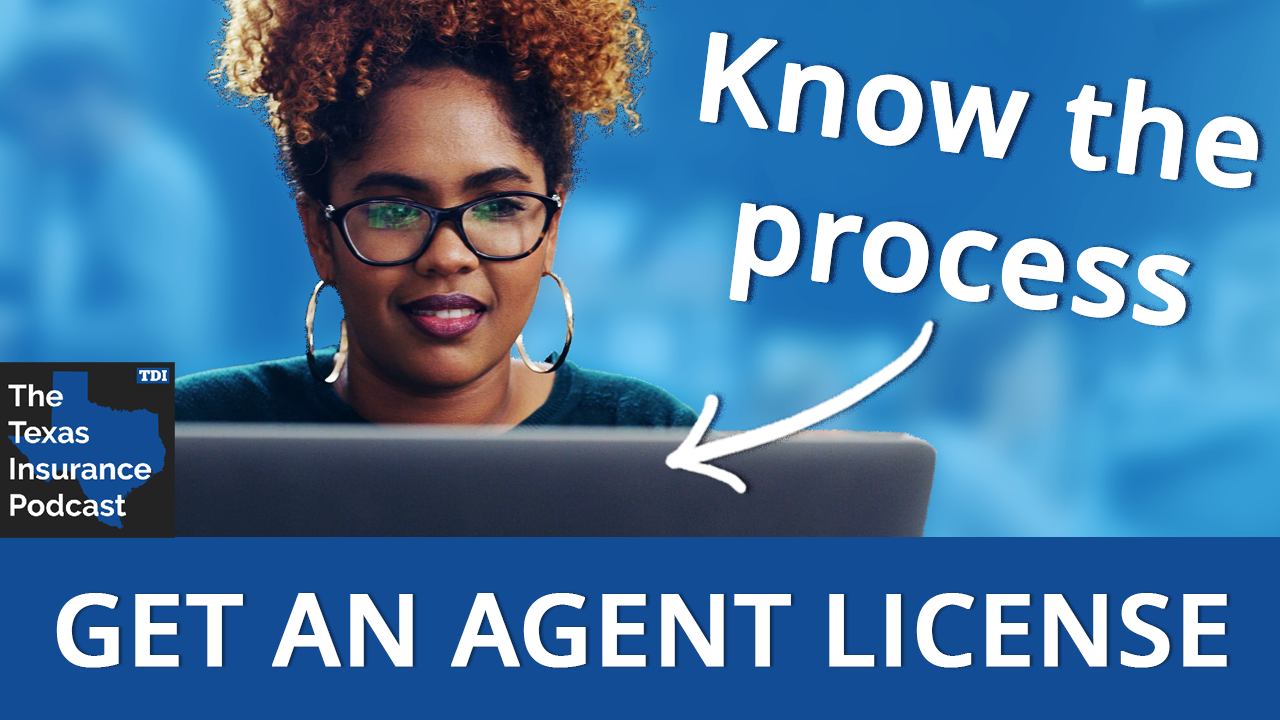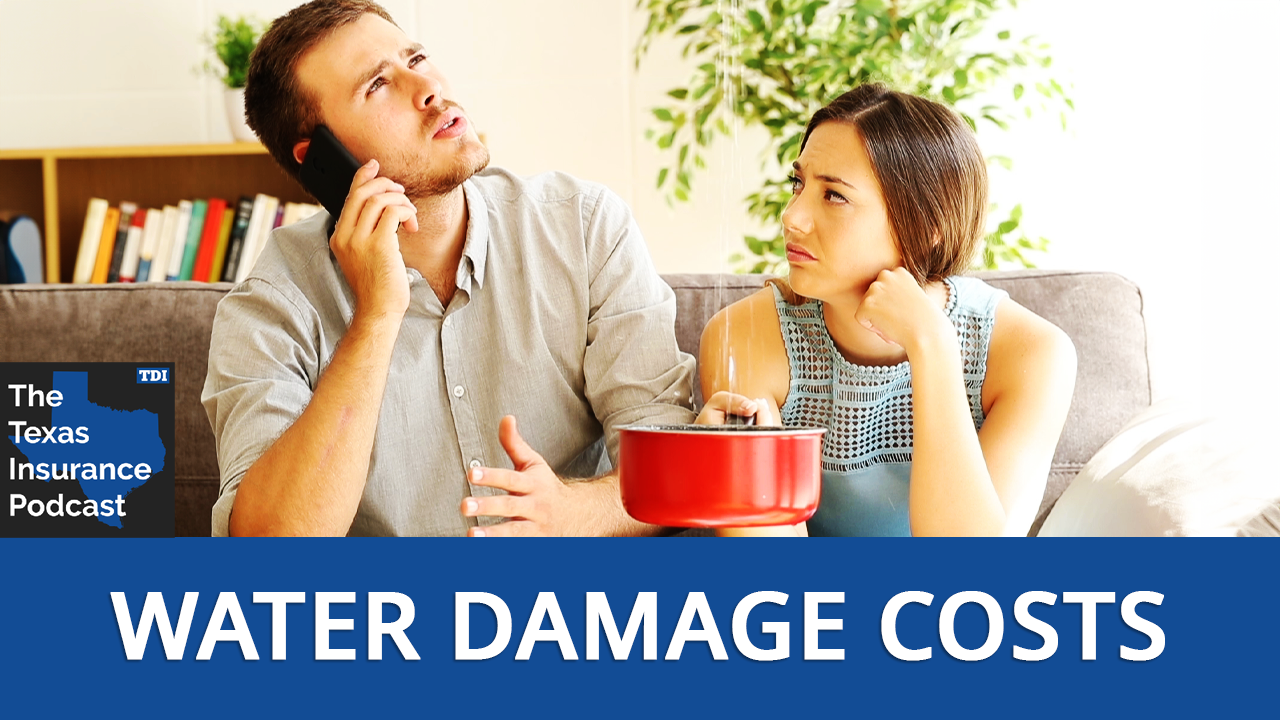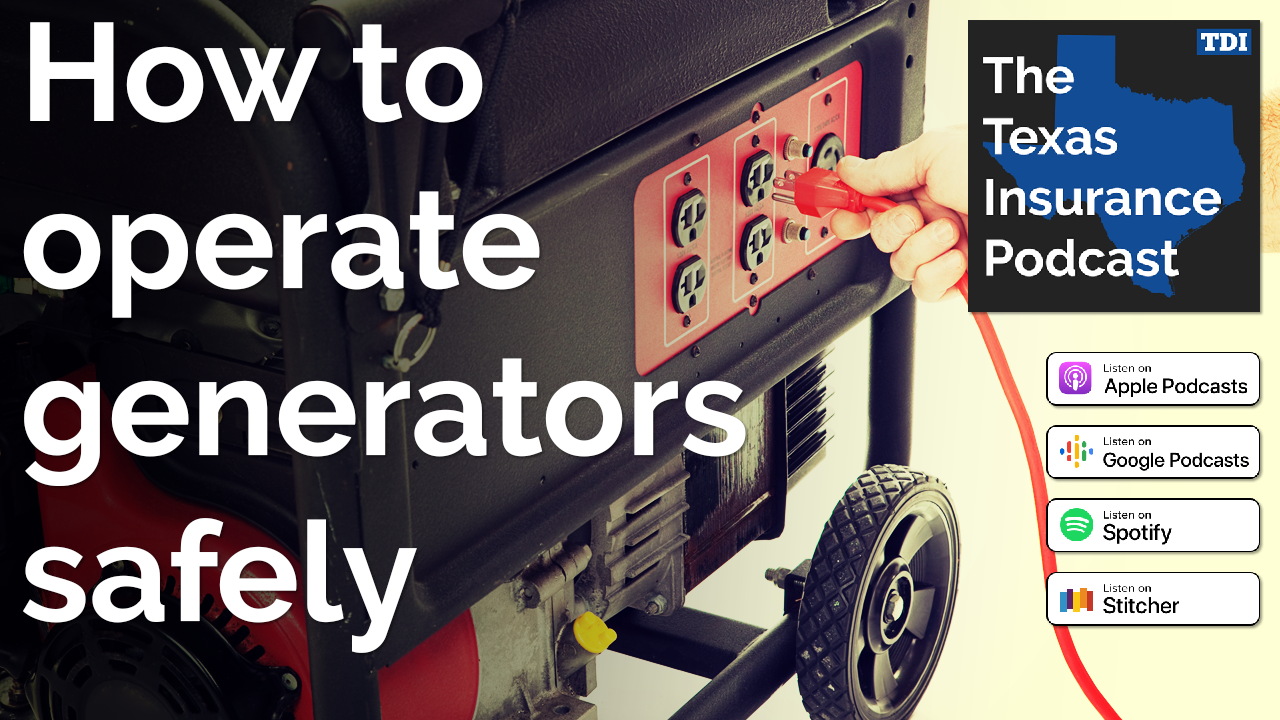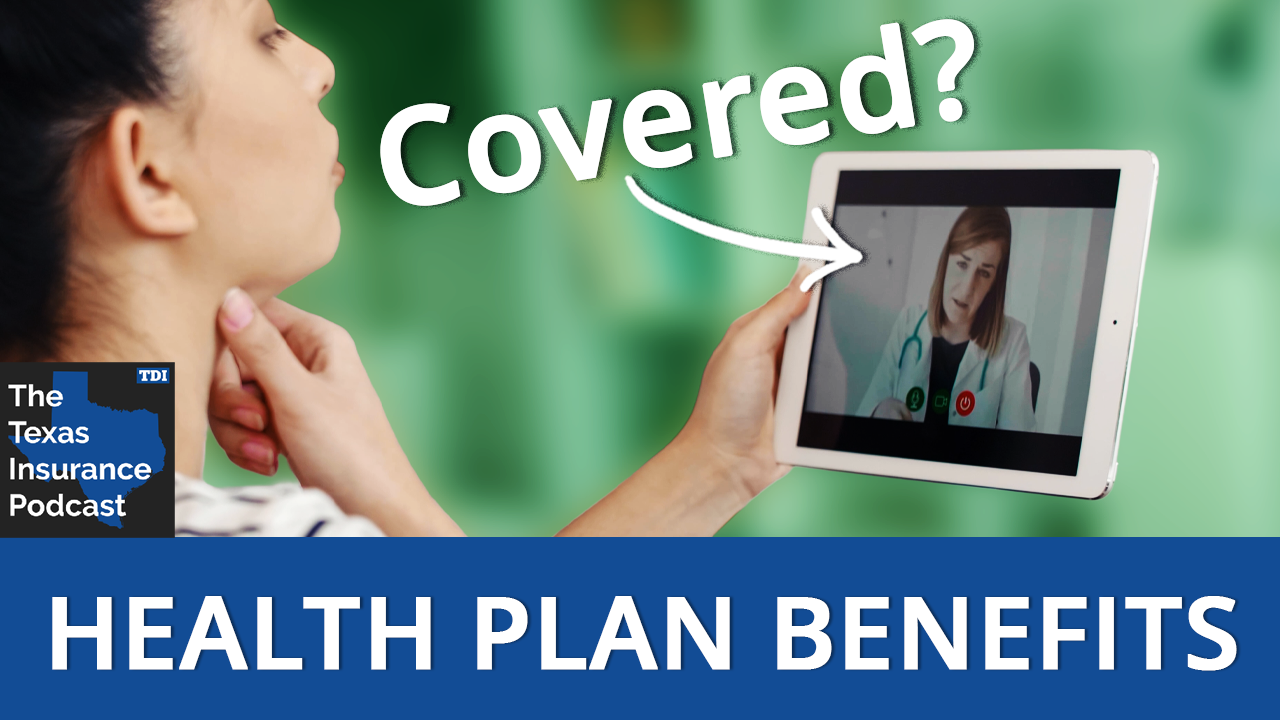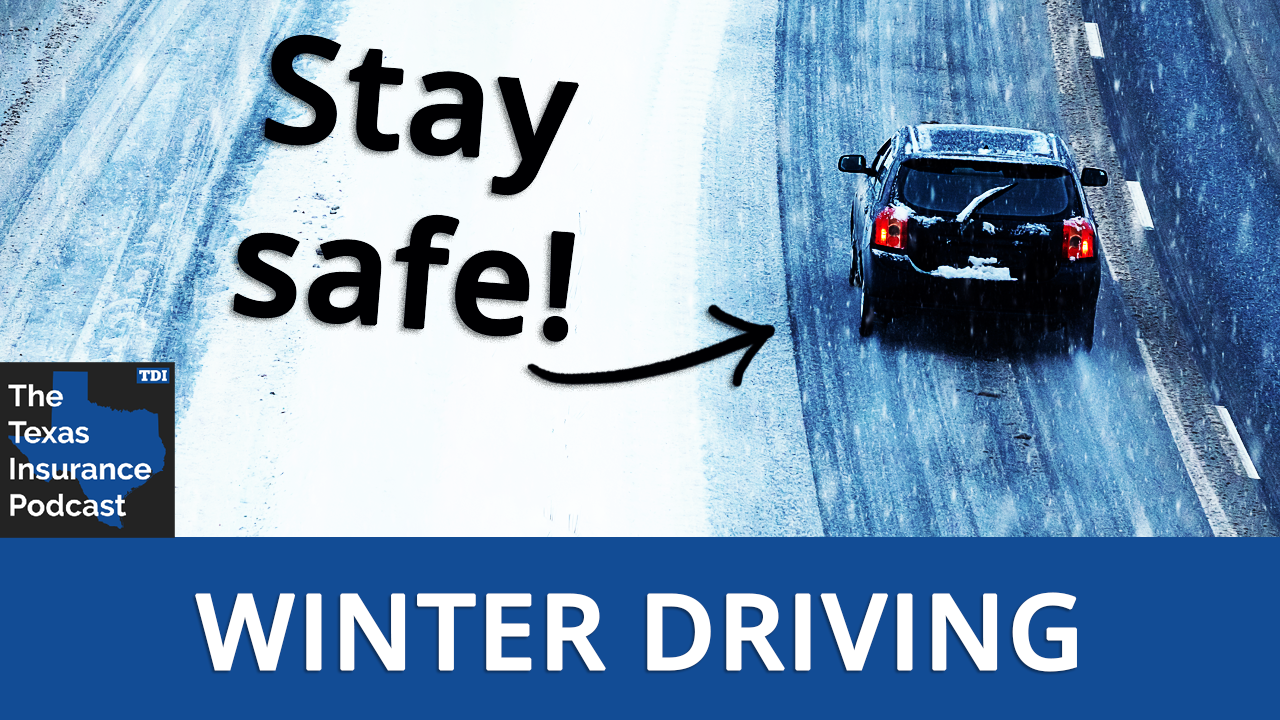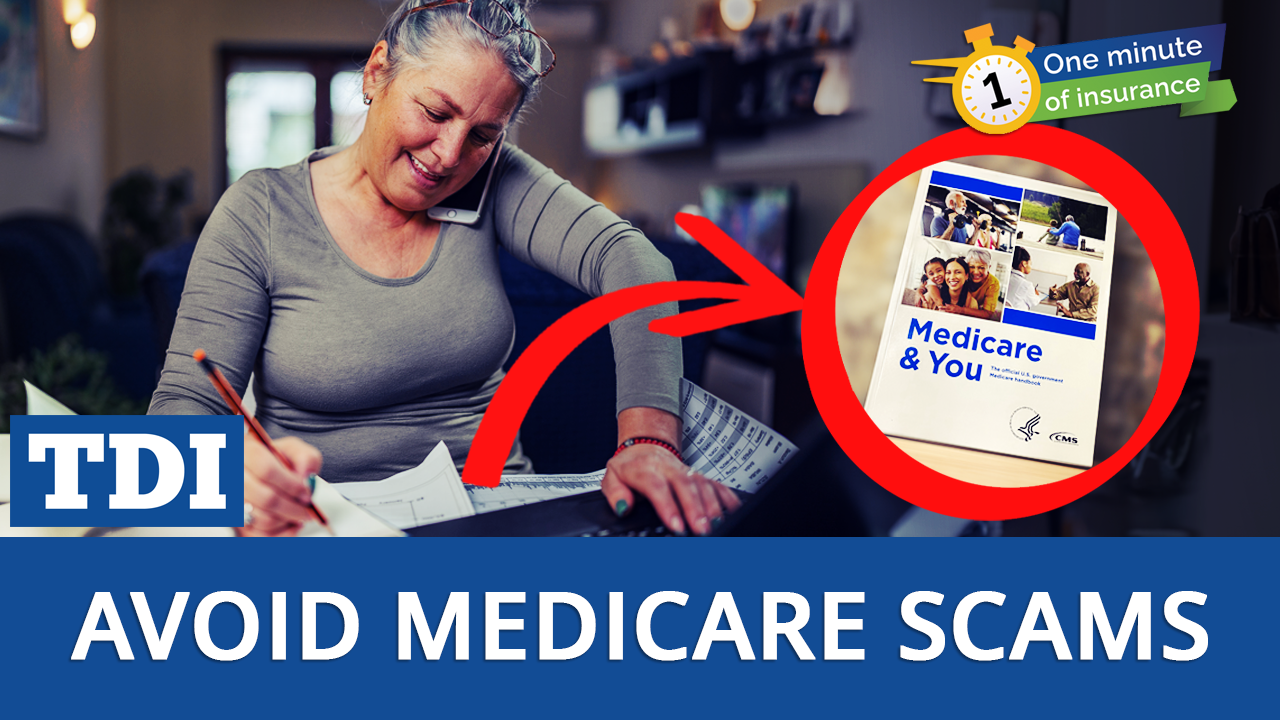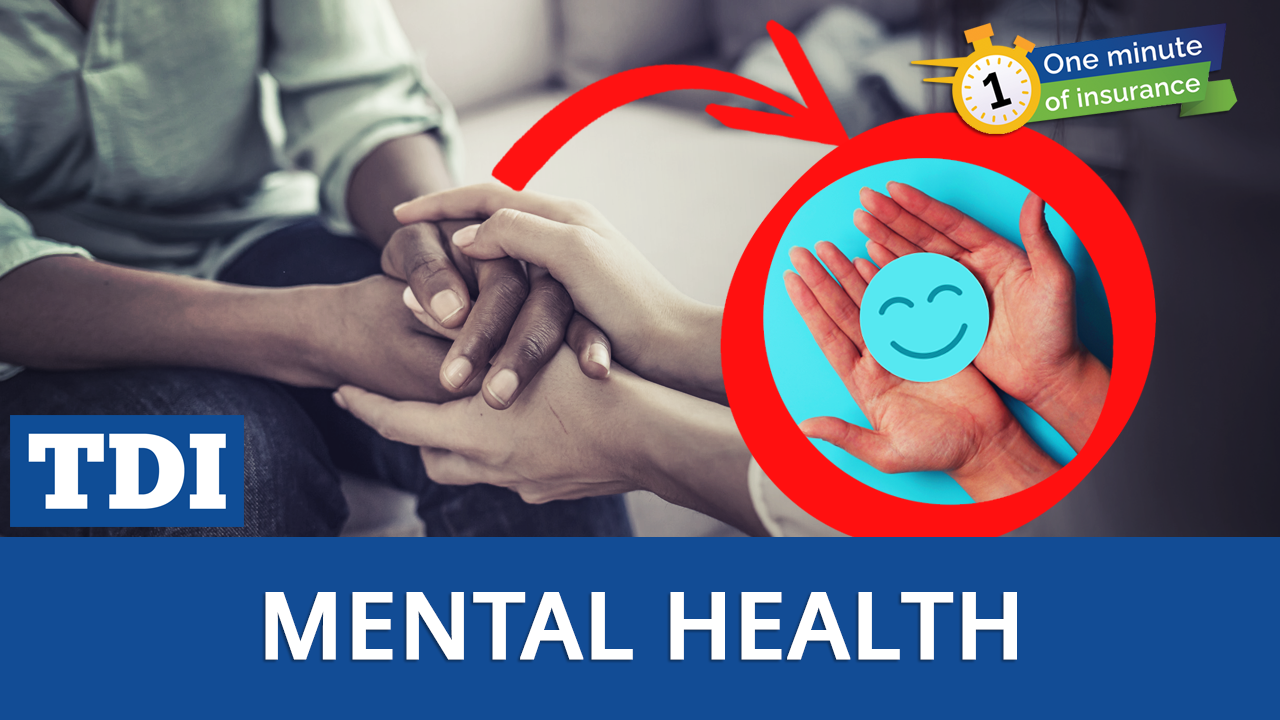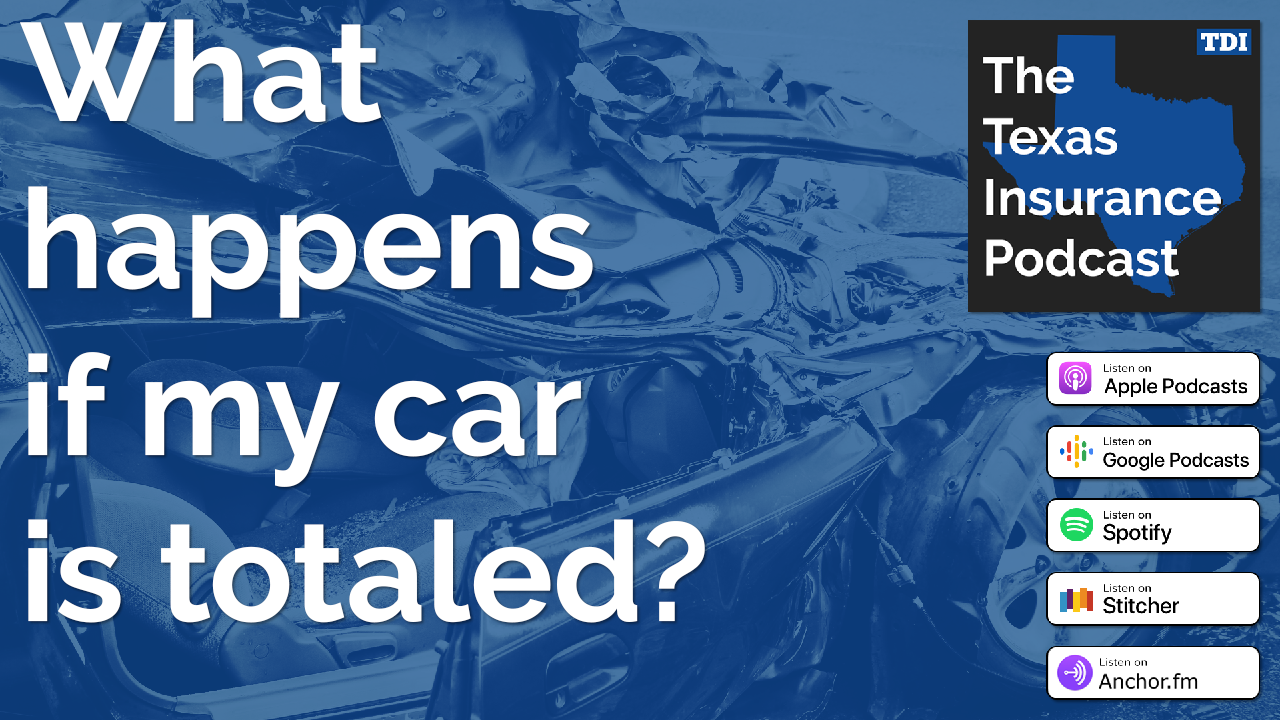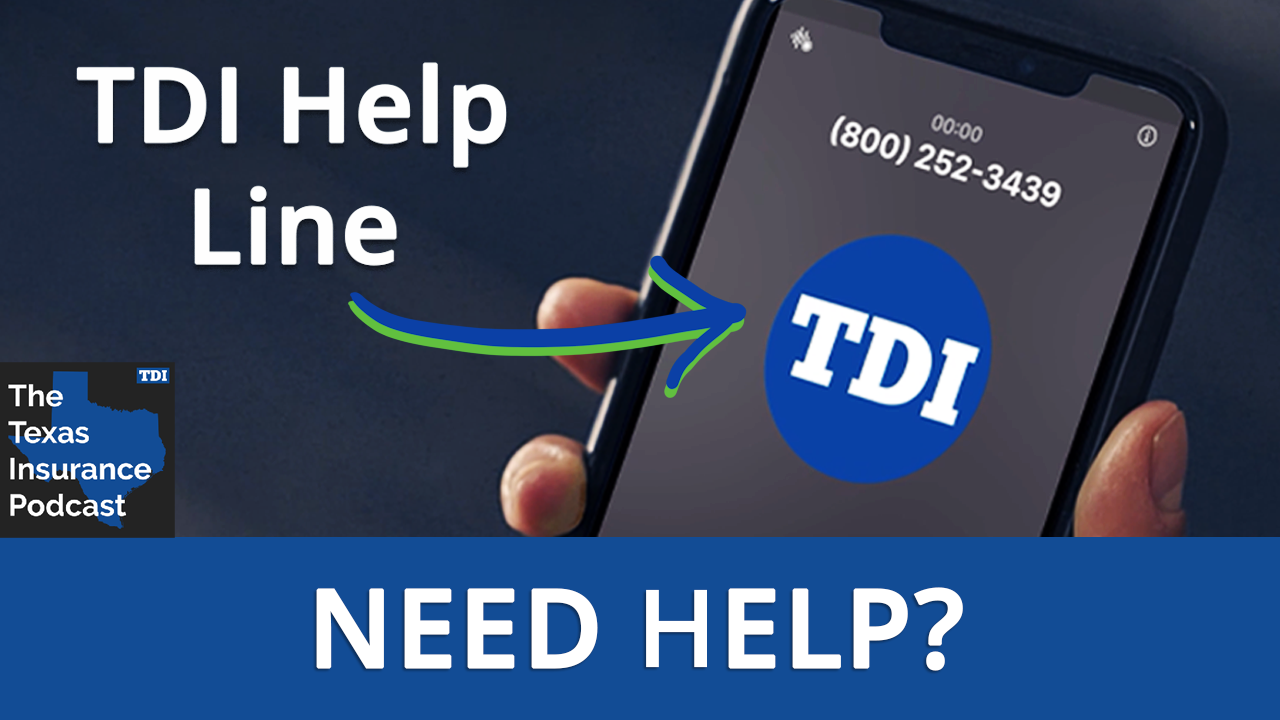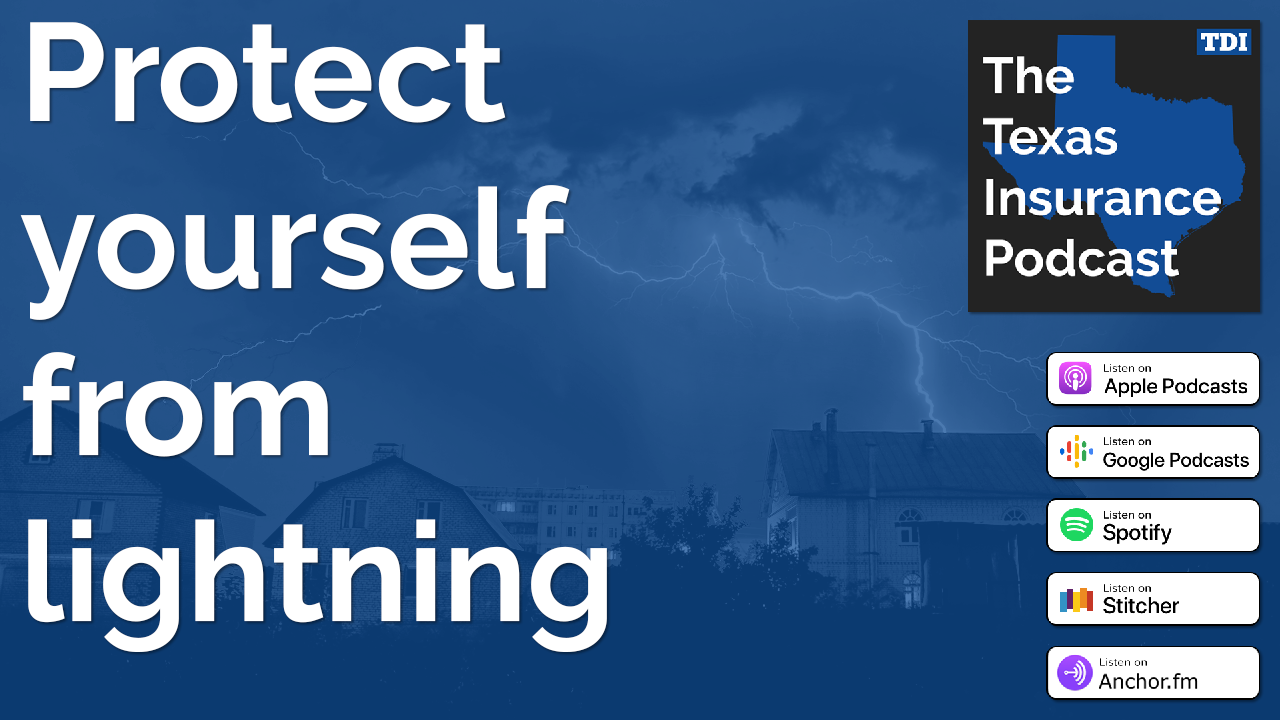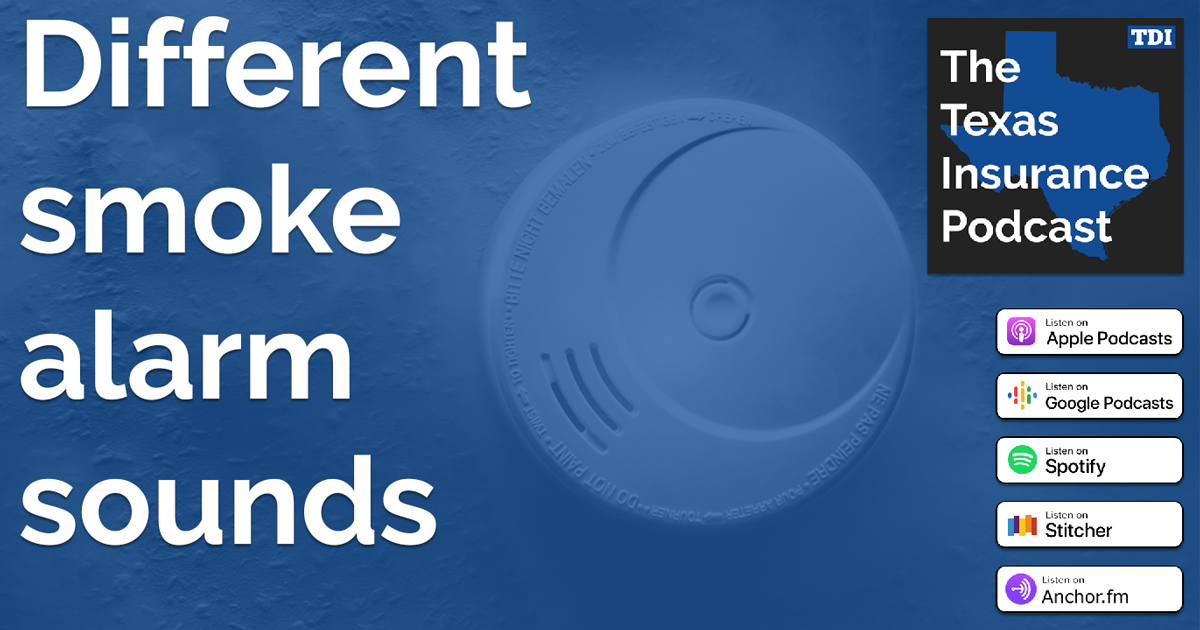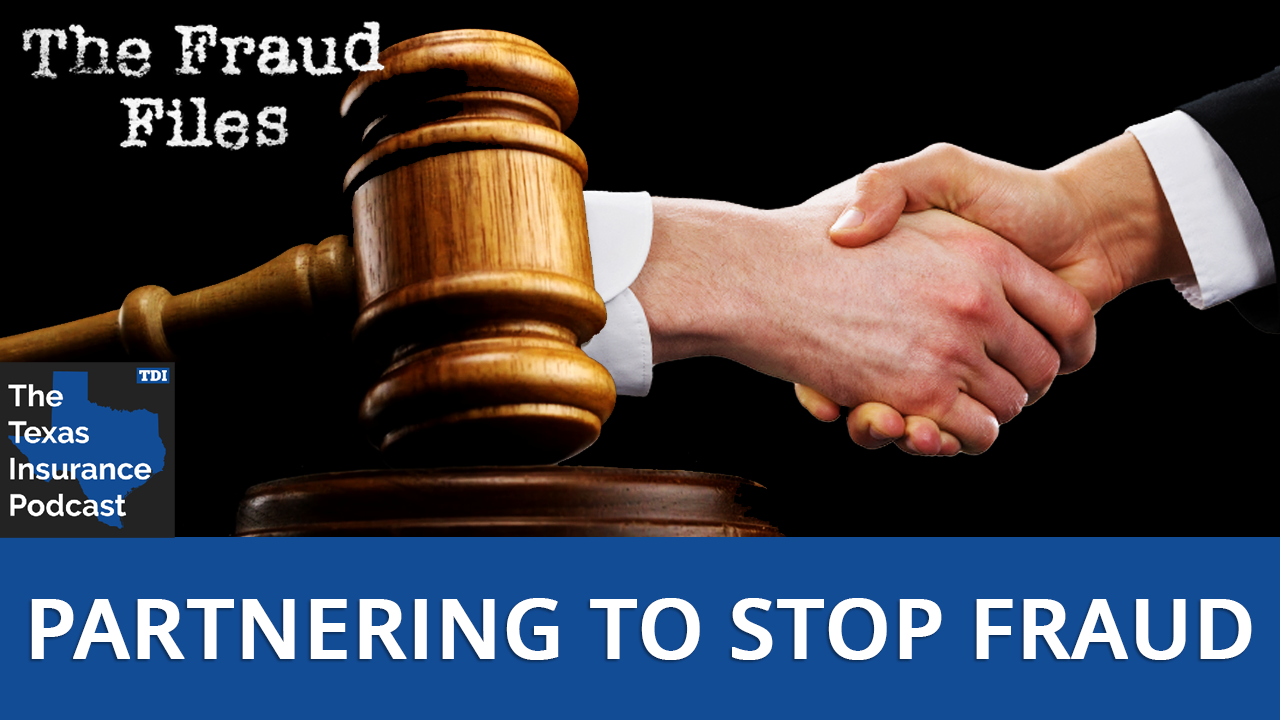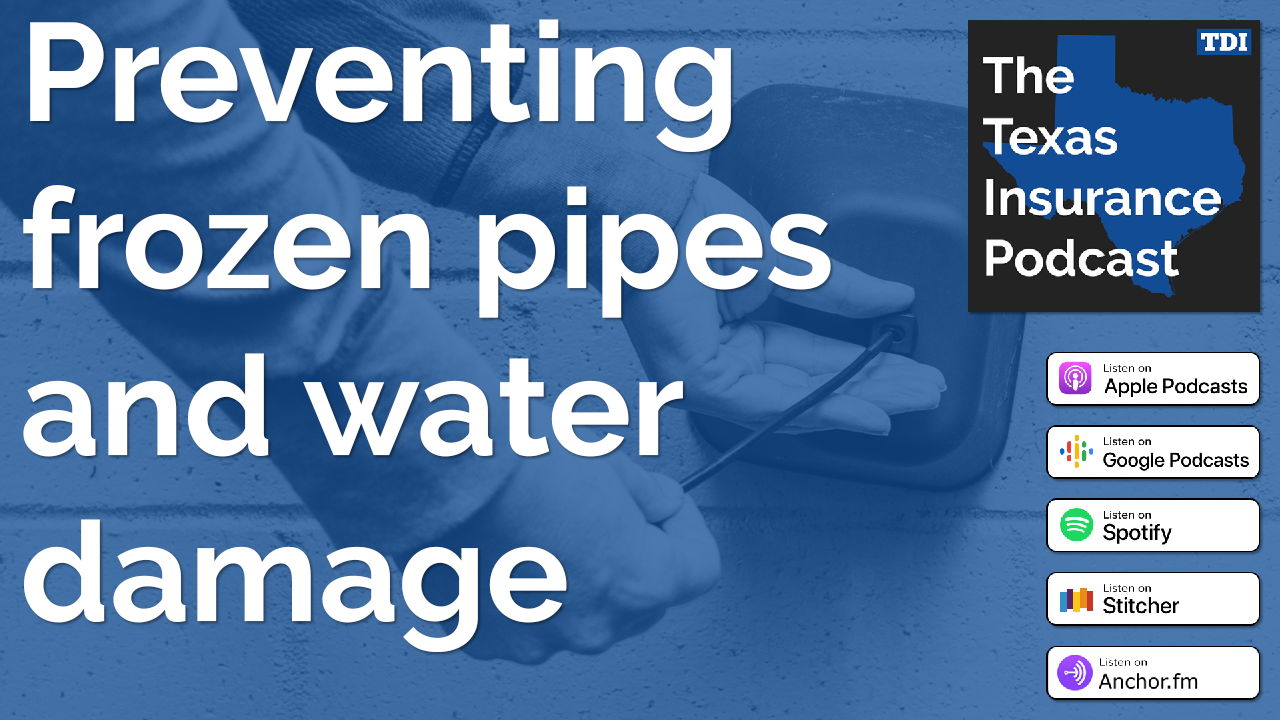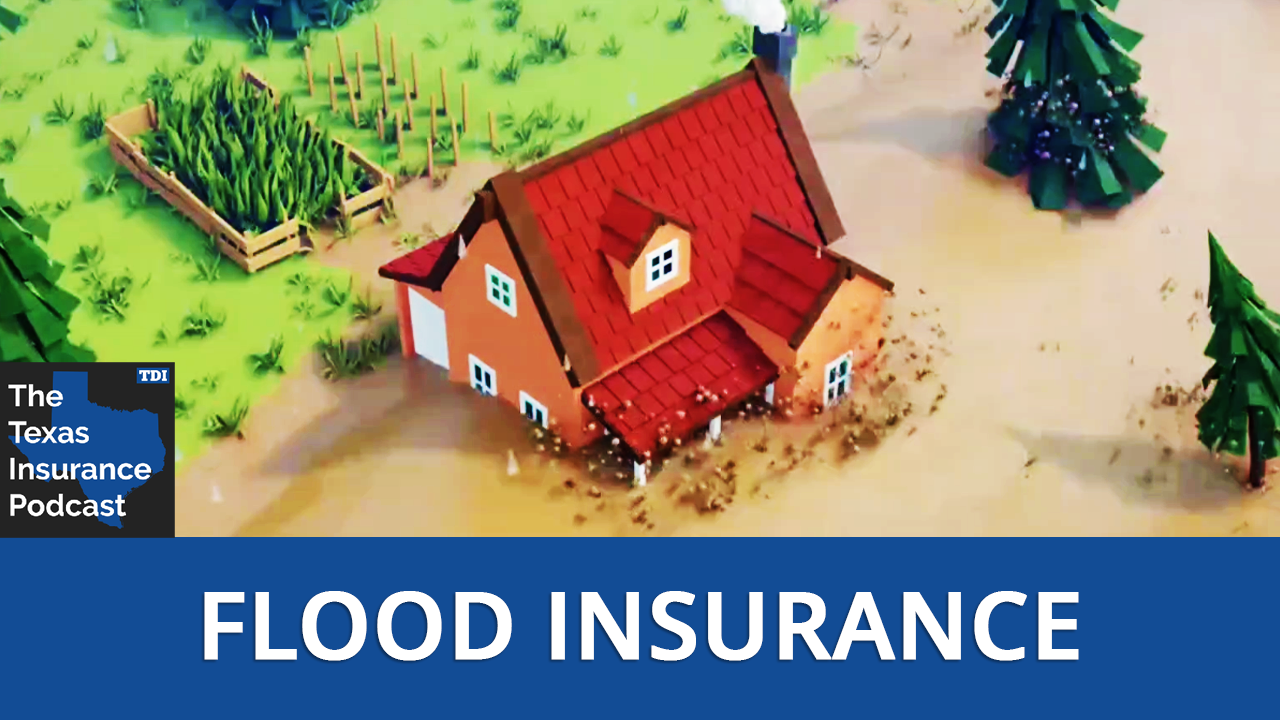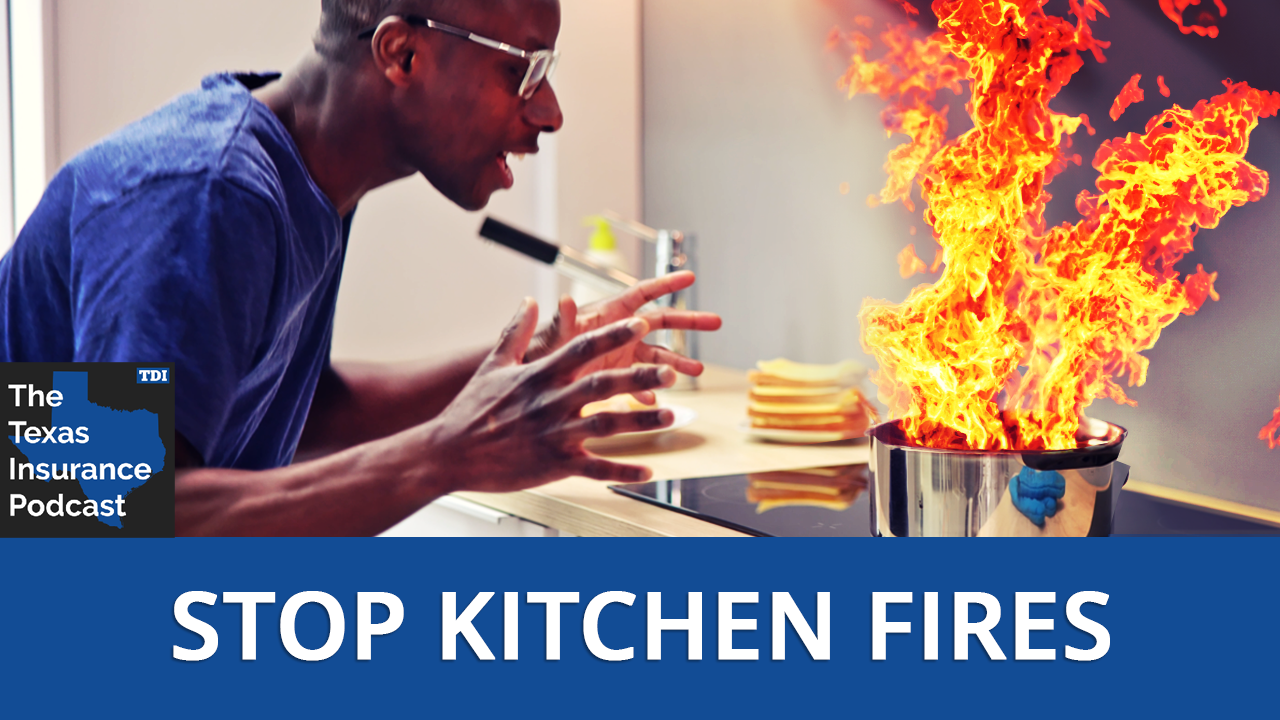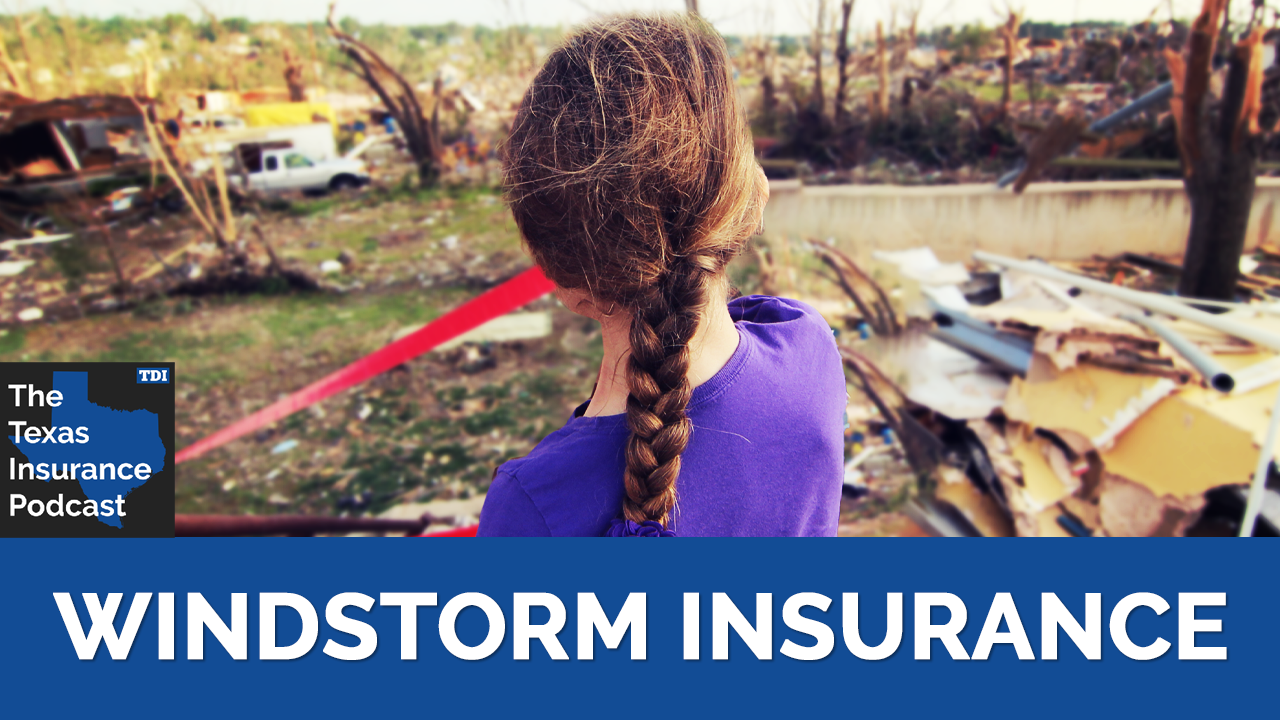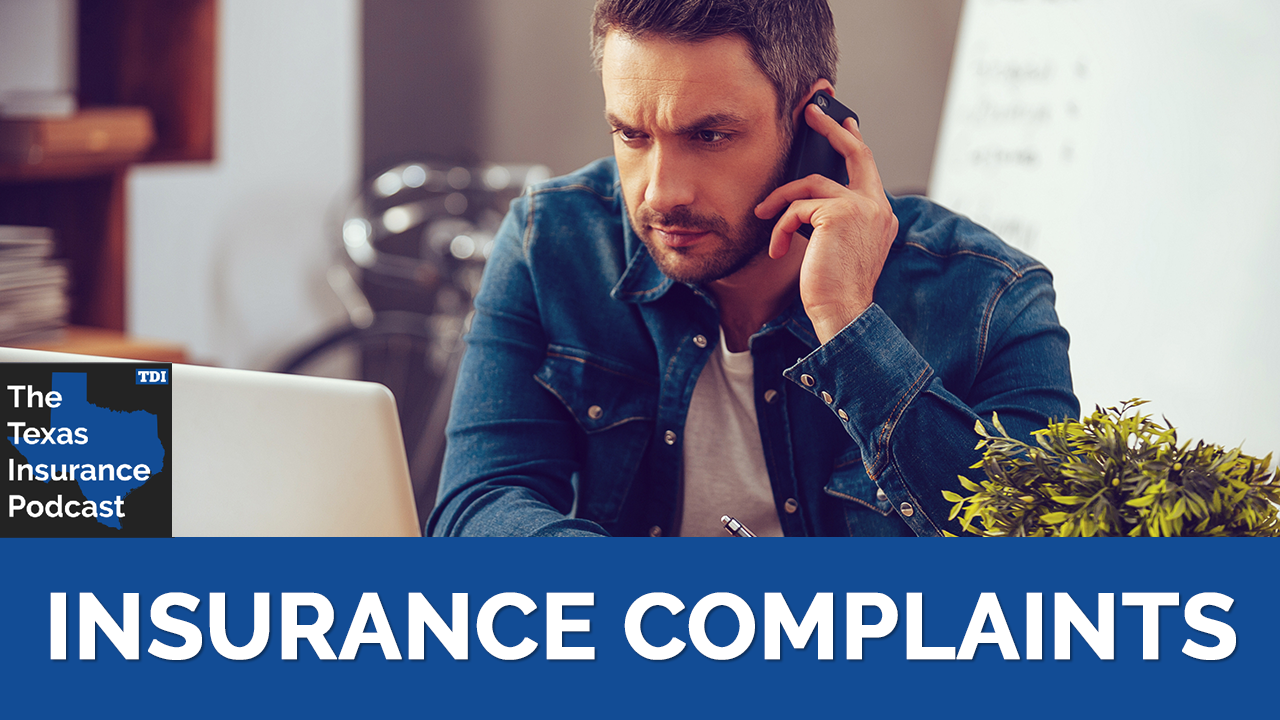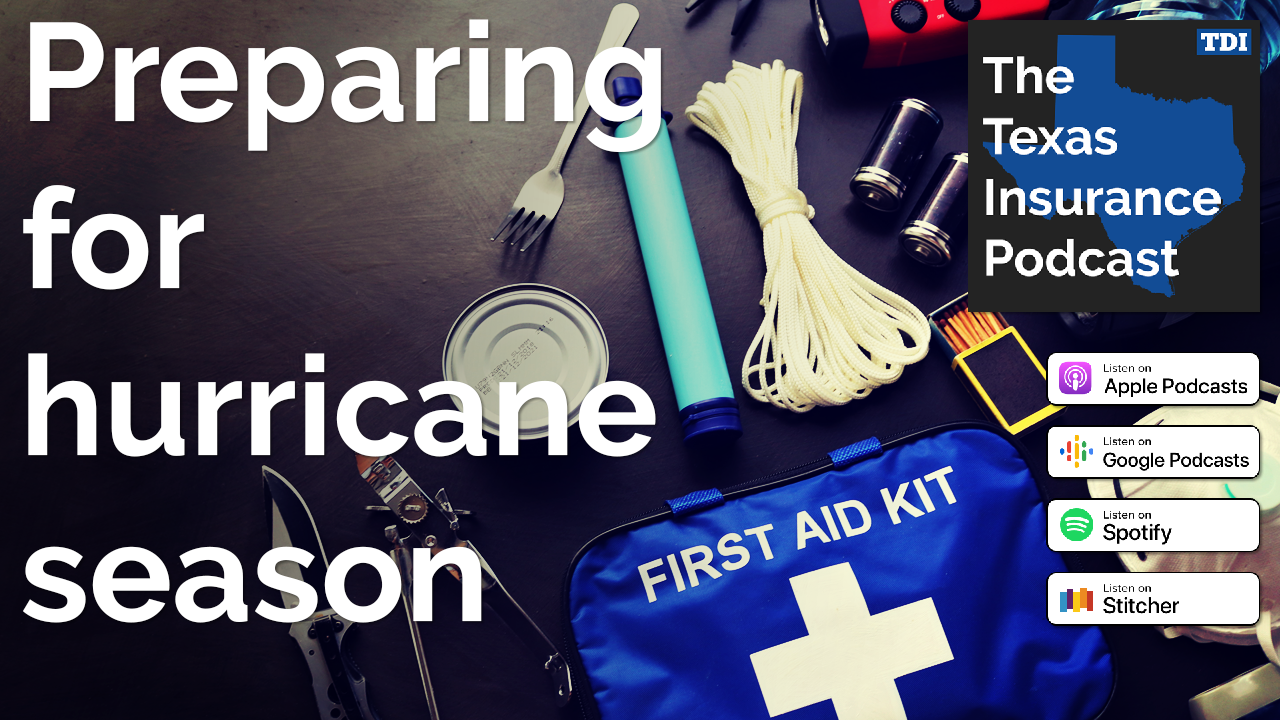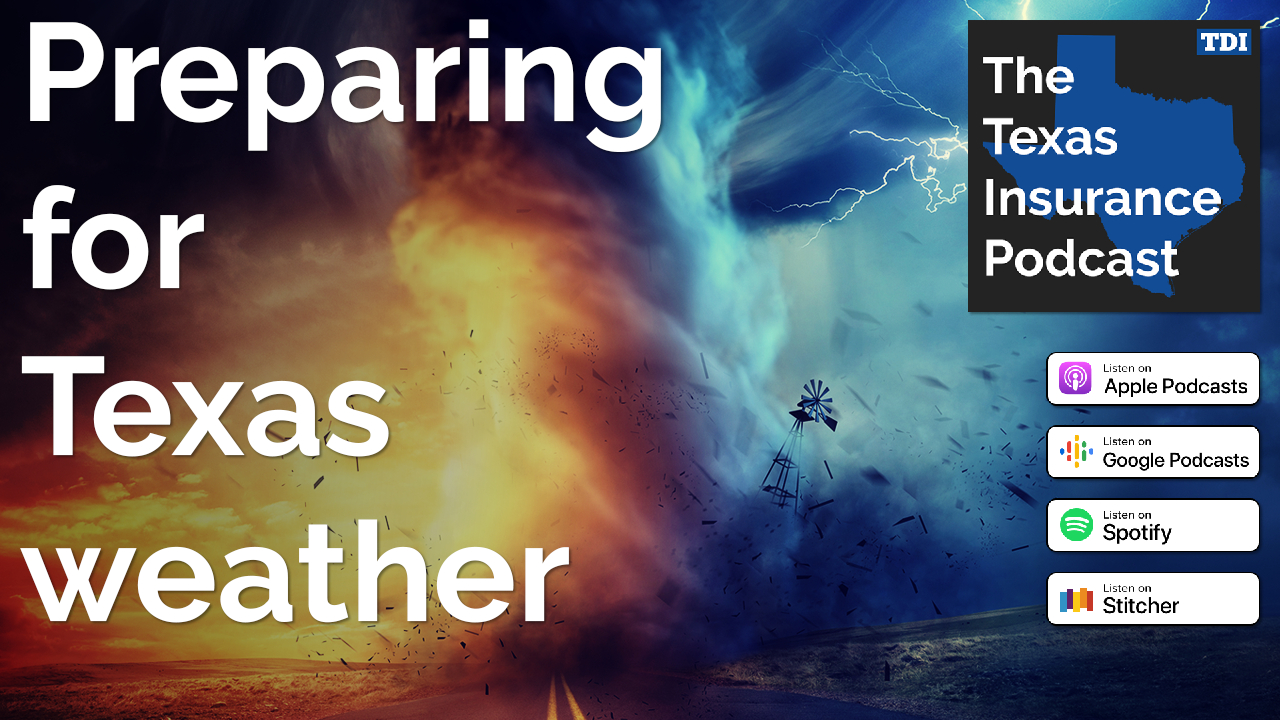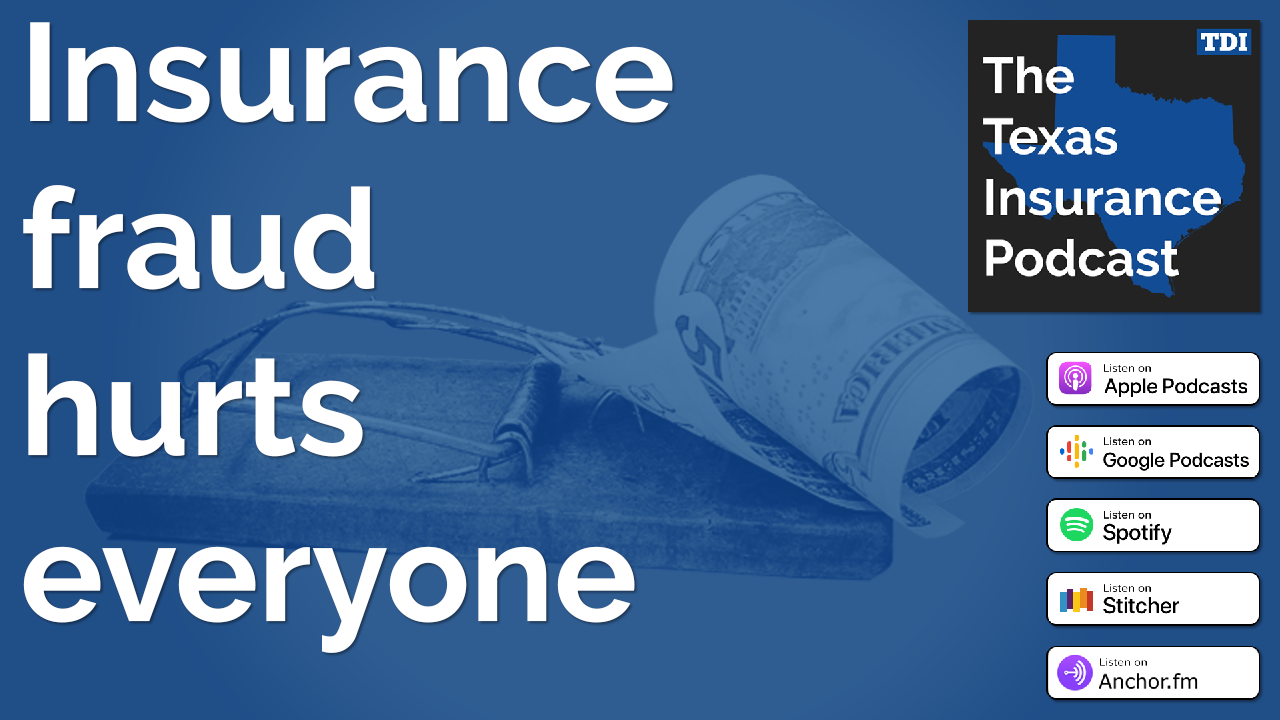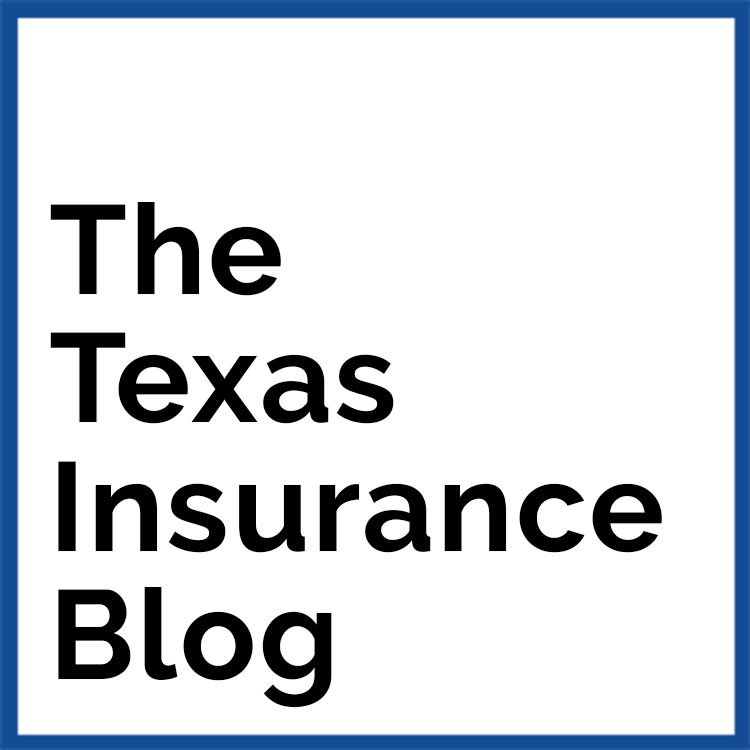February 12, 2026
What you need to know about getting an insurance license
TDI offers more than 34 license types, including both agent and adjuster licenses. Some licenses are product-specific, while others cover broader categories. Choosing the right one depends on the type of insurance products you plan to sell or service.
You can learn more in TDI’s Texas Insurance Podcast.
For most TDI license types, you’ll need to be at least 18 years old, submit to a fingerprint background check review, and pass a licensing exam. Some license types have more requirements, so check the details for the license you want on TDI’s Agent/Adjusters page before applying.
Common license types are:
- Life insurance only.
- Life, accident, and health.
- Property and casualty.
- Adjuster.
If you’re moving to Texas
If you’re moving to Texas and you already have a similar license in another state, you usually won’t have to retake the licensing exam, as long as you notify TDI within 90 days of moving. You will need to submit a new application and TDI will verify your licensing history through a national database.
Learn more
- Careers in insurance: How to become an insurance agent or adjuster
- Individual license online renewal or reinstatement guide
- Continuing education information for agents and adjusters
- What you need to know about continuing ed
- Have a question about your agent or adjuster license?
January 29, 2026
Unexpected indoor waterfall? Home or renters insurance might help.
A pipe bursts—or a toilet overflows or a washer hose breaks.
Good news: Your home or renters insurance policy covers sudden and accidental water damage. Your personal belongings are covered too.
Also, if mold develops on a damaged item, it would be covered.
Still, policies usually won’t cover damage from gradual leaks or seepage—and that includes damage from mold.
Mold from a flood wouldn’t be covered because home policies don’t cover floods. You would need a separate flood policy.
If you have a sudden leak, shut your water off at the main. Move expensive items off the floor. Your insurer may deny your claim if you don’t protect your property.
One more tip: You can always check what’s covered by reading your policy or calling your agent.
Listen to this Texas Insurance Podcast to hear expert advice on insurance and water damage.
Learn more
- When are water damage and mold covered by insurance?
- Winter storms: Tips for preparing your house and pipes
January 21, 2026
How to safely set up and run your portable generator
If you own a portable generator, remember to place it outdoors at least 20 feet from your home’s doors, windows, or vents.
Keeping a distance helps protect you from carbon monoxide gas, which is colorless, odorless, and potentially deadly.
More generator safety tips:
- Don’t put fuel in a hot generator. Turn it off and let it cool before refueling. Only put fuel in containers made for fuel. Never store fuel inside your home.
- Take care of cords. Plug appliances into your generator directly or use a heavy-duty, outdoor-rated extension cord. Check the cord for cuts, tears, or missing prongs.
- If you want to connect your generator to your house’s wiring, have a qualified electrician do it. Make sure the electrician uses a properly rated switch that meets electrical codes.
Watch our video for help using portable generators from Kelley Stalder, chief engineer of the Texas State Fire Marshal’s Office.
View podcast Q&A: How to safely use a portable generator
Learn more
- Generator safety: Knowing these tips can save your life (video)
- Using a generator? Stay safe from carbon monoxide
January 15, 2026
Don’t overlook these unexpected health plan benefits
Your health plan may provide some surprising wellness benefits. Learn about commonly covered things that you may have missed.
Telehealth
Can’t make it to a doctor’s office? Many health plans cover online appointments, often called telemedicine or telehealth, that let you meet a health care professional on your computer or phone.
Immunizations
Health plans often cover vaccinations. Be sure the ones you need are included in your plan and get them at a covered health care provider.
Other services your plan might offer:
- Gym membership discounts.
- Programs to quit smoking.
- Certain diabetes equipment.
- Other medical equipment.
Find out what your plan provides
Every health plan lists certain mandated benefits it must cover in your policy and evidence of coverage documents. Check your plan’s website and get familiar with those documents to find out what your plan pays for.
If you still have questions or aren’t sure, contact your health plan’s customer service or the insurance agent who signed you up.
Learn about health plan benefits in TDI's Texas Insurance Podcast.
Learn more
- How to save on healthcare, from doctors to pharmacies (video)
- Your health plan can help you quit smoking or lose weight.
- Ready to get in shape? Your health plan could help.
December 11, 2025
Prepare now for winter driving hazards
Now’s the time to get ready for winter driving hazards. Don’t wait until freezing temperatures arrive to shop for de-icer and an ice scraper – get them now so they’re ready when you need them.
Maintaining your tires is also an important part of preparing. Tires affect how your vehicle handles on roads made slippery by ice, snow, and rain. Get your tire pressure and tread depth checked and replace worn out tires.
If you must drive in wintery weather, give yourself plenty of time and keep an emergency kit in your vehicle in case you get stuck by ice and closed roads. The Texas Department of Public Safety (DPS) recommends storing water, jumper cables, a flashlight, and blankets in your vehicle and keeping your gas tank at least half full.
If you get in trouble on the road:
- Reduce your speed.
- Pull onto the shoulder or a grassy area.
- Keep your car running.
- Turn on headlights and hazard lights so others can see you.
If you need help, call the Texas Roadside Assistance number on the back of your Texas Driver License at 800-525-5555. That connects you to DPS and they can dispatch a trooper to you. Just keep in mind that it could take the trooper a while to reach you in bad weather.
Learn about preparing for winter driving hazards in TDI's Texas Insurance Podcast.
December 5, 2025
Prepare your home before winter’s fury hits
Winter’s cold can freeze and burst your home’s pipes, causing costly misery.
But you can prepare before the temperature falls.
Before a freeze:
- Wrap outdoor and indoor pipes in unheated areas (like a clothes washer in your garage).
- Remove water hoses and wrap outdoor pipes.
- Drain and turn off your lawn sprinkler system.
Inside, open cabinets under sinks to let your home’s heat warm the pipes. Let faucets drip from the cold and hot taps or run water through your indoor faucets – hot and cold – before you go to sleep.
If your pipes freeze, turn off the water at the shutoff valve. This prevents broken pipes from leaking into your house after they thaw.
Learn about prepping your home and car for winter’s cold in TDI's Texas Insurance Podcast.
Learn more
- Winter storms: Tips for preparing your house and pipes
- How to prevent pipes from freezing (video)
- How to make your house winter-ready
November 6, 2025
How to choose the right health plan
Finding the right health plan starts with knowing your options. There are three main types of plans that offer major medical coverage:
- Preferred provider (PPO) plans. PPOs have higher premiums but more flexibility in doctors. You might need preapproval for some procedures.
- Health maintenance (HMO) plans. HMOs have lower costs, but you’re limited to in-network providers, so make sure your doctors are in the network. You must choose a primary care physician who coordinates your care and usually need a referral to see a specialist.
- Exclusive provider (EPO) plans. EPOs are like HMOs without any out-of-network coverage. You don’t have to pick a primary care physician and can see specialists without a referral. Premiums are usually higher than HMOs but less than PPOs.
Be careful about limited benefit health plans. These may have lower premiums, but they aren’t comprehensive. They don’t meet Affordable Care Act standards and often don’t pay for preexisting conditions, like diabetes.
Other costs you might pay
When you see a doctor or get a health care service, you might need to pay some of the cost yourself until you reach your plan's out-of-pocket limit. These costs are the:
- Annual deductible.
- Copays for doctors and specialists.
- Prescription drug costs.
- Coinsurance.
Know if the plan meets your needs
To see if a health plan is right for you, read its Summary of Benefits and Coverage. This document lets you make a side-by-side comparison of the coverage in different plans. Start by reviewing what you will pay for the care you are likely to need – such as visits to your doctors or specialists, urgent care, and emergency rooms. Compare what the plan will cover before you meet the deductible. Also review the plan limits and exclusions.
Before you buy a plan, ask if your doctors and specialists are in their network and check that your prescription medications are covered. Ask how much you will pay each month to refill for your prescriptions.
When to sign up for a health plan
You can get a new health plan during open enrollment. If you’re shopping on HealthCare.gov, this is from November 1 to January 15. Enroll by December 15 to get coverage that starts January 1. Have an estimate of your annual income ready to see if you qualify for a credit to lower your monthly premium.
Even if you’re keeping the same health plan you had last year, check that you can still get the same benefits. These can change from year to year.
If you have a health plan through your job, ask for open enrollment dates from your company’s human resources department.
Special sign-up times outside of open enrollment
There are special enrollment periods for big life changes, like the birth or adoption of a child, marriage, or moving to a new state or country where your plan isn’t available. Sometimes your income changes and you might qualify for a tax credit that you didn’t qualify for before.
If you qualify for a special enrollment period, contact HealthCare.gov or your job’s human resources department.
Learn more about enrolling for a health plan on the Texas Insurance Podcast.
Learn more
- Before you buy an alternative health plan... (video)
- Use these tips to shop smart for health coverage.
- Health care coverage guide.
- How to apply and enroll.
- Alternative health plans.
- Know what kind of health insurance you’re buying.
October 30, 2025
Open enrollment for Medicare runs through December 7
It’s that season, time to shop for what you want in Medicare.
Medicare, federally-funded health insurance, is open to Americans 65 or older, younger people with disabilities, and people with end stage renal disease.
You have until Dec. 7 to change your Medicare health or drug coverage for 2026. The open enrollment period lets you join, switch, or drop a Medicare Advantage Plan or a Medicare drug plan.
A Medicare Advantage plan provides Medicare through a private company.
Sometimes a plan offers additional benefits. For instance, you may not need a separate drug plan if your Medicare Advantage plan has drug coverage.
Any changes you make take effect January 1.
In our Texas Insurance Podcast, we spoke with the Area Agency on Aging of the Capital Area about tips to find a plan that works best for you.
Learn more
October 30, 2025
Your mental health: What to know about getting help.
If you have a fever or body aches, you’d go to the doctor. If you think you’ve broken a bone or have heart flutters, you might go to the ER.
Are you taking the same care of your mental health? Or are you worried about the cost or don’t know where you’d go for help?
Texas and the federal government have laws to protect consumers and guarantee that health plans give you the same level of mental health benefits as your medical benefits, such as the number of office visits. This is known as “mental health parity.”
The laws require mental health parity for:
- Payment limits. Some plans have limits on how much it will pay over your lifetime or over a year. If your plan has a limit for medical benefits, the limit should be the same for mental health benefits.
- Out of pocket expenses. Your plan should have the same copayments, deductibles, or coinsurance for mental health and medical benefits.
- Provider availability. Your plan should have a network of mental health providers and facilities, like it does for medical health.
- Treatment limits. Your plan shouldn’t limit the number of visits for mental health treatment if it doesn’t for medical health.
All of that may seem complicated.
But basically, your health coverage should have a mind-body connection. And that connection should be all the time, not just when there’s an emergency.
Don’t delay or deny yourself care because you don’t think your plan covers it. Contact your health plan first for information and a list of providers in their network.
The Texas Department of Insurance is here to help. If you have insurance questions or want to file a complaint, call our Help Line at 800-252-3439.
Learn more
- How to get help with a mental health issue
- Get help from Mental Health TX
- Understanding mental health systems and services in Texas
August 27, 2025
Hold on! My totaled car is worth more than insurance wants to pay
You’re already bummed by your car wreck. Now your auto insurance company wants to total your car. This means the insurance company will pay the market value of your car—instead of covering the cost of repairs.
If your company isn’t offering the amount you think your car is worth, you have some options:
- Find out what a car like yours – the same make and year – would sell for in your area. Get written quotes from used car dealers. Also, look online for cars being sold near you.
- Write down any special features or custom parts that make your car worth more. (You probably can’t count that thingie hanging from your rear-view mirror.)
- Call your insurance company or adjuster and ask if they’ll pay more than what they have offered. Give them the quotes you collected and point out the car’s special features.
- If your company won’t pay more, ask about using an appraisal process. You and the company each hires an appraiser to determine the value of your car. The appraisers choose a third appraiser to act as an umpire. The umpire rules on any disagreements. You pay for your appraiser and half of the umpire's costs.
- If you owe more than your car is worth, check your purchase documents to see if you bought gap insurance when you bought your car. You might also have loan/lease coverage in your auto policy.
If you’d rather keep your car as is, let your company know quickly. It will subtract the car’s salvage value from the original amount it was planning to pay you. You can spend your revised payment on the car or not.
Hear more expert advice about totaled cars in this Texas Insurance Podcast.
View podcast Q&A: How to deal with a totaled car
Learn more
- My car was totaled! Now what?
- Do you need gap insurance for your car? How does it work?
- How can I avoid scams when I buy a used vehicle?
August 14, 2025
Texas insurance questions? Call TDI’s Help Line
Have a question about insurance in Texas? Call the Texas Department of Insurance’s Help Line at 800-252-3439.
It’s open weekdays from 8 a.m. to 5 p.m. Central time. Experts take questions in English, Spanish, and other languages.
Operators can:
- Talk you through steps you need to take to file an insurance claim—and share your rights under Texas law.
- Connect you to consumer tips about auto, home, health, life, and other kinds of insurance.
- Check if a company or agent is licensed in Texas – and if they faced disciplinary action.
- Tell you how to file a complaint so TDI can look into your issue.
Learn more about the Help Line from the Texas Insurance podcast.
Learn more
- Getting help with an insurance complaint
- File an insurance complaint
- Steps to getting your home or car insurance claim paid
August 13, 2025
Will your car’s rubber tires keep you safe from a lightning strike?
True or false: Your car’s rubber tires will protect you if lightning strikes your car.
False!
John Jensenius of the National Lightning Safety Council says it’s the type of car – not the tires – that protect you from lightning. You’re the safest in a hard-topped vehicle. When lightning hits, he says, the shock gets dispersed by your car’s metal shell and keeps the people inside safe.
Tire twist: If your car or truck has steel-belted tires, a lightning strike can blow them out.
Learn more from Jensenius about staying safe from lightning on this Texas Insurance Podcast.
Learn more
Thunderstorms: How to protect yourself from lightningAugust 4, 2025
Hear a beep? Get on your feet!
Smoke and carbon monoxide alarms in your home deliver potentially life-saving messages.
Your alarm’s sounds can signal different dangers:
- A set of three loud continuous beeps means smoke or fire.
- A set of four loud continuous beeps means carbon monoxide is present.
- A single chirp – repeating every 30 to 60 seconds – means your alarm battery is low and needs to be changed. If your alarm continues to chirp after replacing the battery, that means the alarm unit needs to be replaced.
Learn more about how smoke and carbon monoxide alarms keep you safe in the This Is TDI podcast featuring Kelly Ransdell of the National Fire Protection Association.
“We want people to learn the sounds of fire safety,” Ransdell says.
View podcast Q&A: How to know what your smoke alarm is telling you
Learn more
- How to protect your family from a home fire
- How to avoid carbon monoxide poisoning at home
- How to escape from a house fire
June 12, 2025
Dogs sniff out fire accelerants for Texas State Fire Marshal’s Office
Ever wish you could work with your best friend? Well, a few employees with the Texas State Fire Marshal’s Office (SFMO) get to do that.
Positioned around the state, these handlers live and work with dogs that sniff out liquid accelerants at fire scenes.
Trained dogs have helped the SFMO look for traces of ignitable liquids for over 30 years. Each time a dog detects a suspicious smell, it’s rewarded with a toy or ball.
Learn more about these dog detectives on this Texas Insurance podcast.
Learn more
- Dog burned in fire now helps state investigate fires
- Fire Investigations Division Accelerant Detection Canine Unit
April 10, 2025
Protect or harden your home before bad weather hits
Texas gets more tornadoes than any other state and plenty of hail. Hurricanes too.
Homeowners can prep their homes for all kinds of bad weather.
Some tips:
- Trim your trees. Broken limbs can damage your roof, break windows, and more.
- Know where to shut off your utilities outdoors.
- Make sure any sheds, outdoor furniture, and grills are tied down so they don’t become flying objects in heavy wind.
- Make sure all your gutter fasteners are tight. If you live in a hail-prone area, consider upgrading your gutters to steel. Steel is more durable than vinyl or aluminum.
- Keep your roof in shape. As shingles age, they can lift or let water inside your home. When it’s time to replace your roof, use impact-resistant shingles and make sure they’re properly installed.
Learn more about protecting or “hardening” your home in an expert interview on the Texas Insurance Podcast.
Learn more
- Are you prepared for a tornado? Here’s how to protect your home.
- Are you ready for a disaster?
- Hurricane season: How to prepare your home and property
March 13, 2025
¿Un minuto? Podcast highlights insurance tips in Spanish
¿Tiene un minuto?
Then you have time for TDI’s 60-second consumer videos in English and Spanish.
Lorna Camacho advises consumers in the Spanish versions of the department’s One Minute of Insurance videos. They’re called Un Minuto de Seguro.
“Insurance can be challenging in any language,” Camacho said. “Our videos deliver basic information. You can then get more detail from our online consumer tips pages, in English and Spanish.”
Camacho shares more in this Texas Insurance Podcast.
Get to TDI’s Spanish-language page from the Español tab on TDI’s home page at tdi.texas.gov.
Have an insurance question in English or Spanish? TDI’s Help Line is 800-252-3439. It’s open weekdays from 8 a.m. to 5 p.m. Central time.
Learn more
- TDI expands access to insurance information in Spanish
- Get consumer tips
- Read blog posts
- Watch one-minute videos
February 13, 2025
TDI prosecutors embed in Texas district attorney offices
State lawyers who fight insurance fraud, pursuing millions of dollars in restitution, work closely with local authorities.
A few Texas Department of Insurance (TDI) lawyers are even sworn in as assistant district attorneys. These attorneys are embedded in district attorney offices from Dallas and Fort Worth to Austin, Houston, and San Antonio.
“District attorneys don't always have the resources or expertise to address insurance fraud as a crime,” said Dallas-based Kyson Johnson, who leads the TDI Fraud Unit’s 20-year-old; prosecutor program. ”Every tip or fraud report that we receive is looked at on a case-by-case basis.”
In 2024, TDI’s Fraud Unit contributed to investigations landing nearly $58 million in court-ordered restitution.
Learn more about TDI’s embedded prosecutors from the latest Texas Insurance Podcast.
Learn more
- About the TDI Fraud Unit
- Report Texas insurance fraud
- Fraud Unit chief prosecutor promoted in Army Reserve
January 31, 2025
How to file your insurance claim
Need to make an auto or home insurance claim?
Tips to help you succeed:
- After a car accident or incident at your home, talk to your insurance company. You’ll want to discuss your options. Maybe you don’t want to file a claim. Consider your deductible—how much you pay before your insurance pays.
- If you make a claim, write down details including when you called the company, who you talked to, and your adjuster’s name. Also, make a list of documents or information the company wants from you.
- After a car accident, move your car to a safe location. Take photos of the accident scene, including your car, other involved cars, and anything that’s been hit such as trees, buildings, or street signs. Also photograph the other driver’s insurance information, driver’s license, and license plate.
- If your house is damaged, write down the time and date you first saw the damage. Also note what the weather was like at the time. Take photos of any damage. Protect your home from further damage by covering broken windows or putting a tarp over a roof hole. Don’t make permanent repairs until your company gives the OK.
- On any claim, save all receipts.
.
Want more tips about making a claim? Listen to this Texas Insurance Podcast.
Learn more
- Tips for filing a claim with your insurance company
- Were you in a wreck? Tips for auto insurance claims
- Steps to getting your home or car insurance claim paid
January 16, 2025
Another Texas freeze in forecast? Podcast has steps to protect your home.
Just saying “freeze” can make a Texan flinch.
But you can take steps to protect your home before temperatures drop.
For starters, wrap indoor pipes with insulation. Wrap your attic pipes first.
And when a freeze happens, you can run water through your indoor faucets – hot and cold – before you go to sleep. Or you can let faucets drip from the cold and hot taps. Be sure to follow your local government’s instructions, which may limit water use.
Hear more about prepping your home on “The Texas Insurance Podcast,” featuring David Yelovich, a Texas State Board of Plumbing Examiners board member. Our podcast closes with TDI advice on insurance and water-related damage.
November 14, 2024
Fraud investigators catch insurance criminals
Insurance fraud happens daily – and it drives up everyone’s premiums.
But TDI fights fraud. About 30 TDI investigators identify and help catch and prosecute people for fraud.
More than 200 TDI Fraud Unit investigations a year lead to consumers getting restitution and criminals facing prosecution and prison time.
Types of fraud include identity theft and not sending your premium payments on to the insurance companies.
Hear more from the unit’s financial analyst in this episode of the Texas Insurance Podcast.
Learn more
- Fraud investigators: How TDI solves insurance crimes (video)
- Report insurance fraud
- Insurance fraud guide
- Fraud investigator helps shut down COVID-19 testing fraud
- How "Doc" Gallagher defrauded investors of millions (video)
September 12, 2024
How to make a home inventory for insurance
Ever heard of a home inventory?
It’s not a list of homes.
It’s a list of stuff inside your home that you’d want to replace when making an insurance claim after a theft, flood, fire or other disaster. Items in an inventory include furniture, clothing, appliances, silverware, glassware, and other personal property.
In this Texas Insurance Podcast, TDI’s Margo Morris shows how to make your inventory.
Learn more
August 1, 2024
Tips to avoid fraudulent insurance sales scams
Avoid fraudulent sales scams with these tips:
Beware of unexpected calls. If you didn’t call them first, the salesperson probably found your information on a mailing list.
Don’t buy over the phone. The risk of fraud is greater if you buy insurance over the phone or online. Hang up on callers if something doesn’t sound or feel right.
Never be rushed. Be wary of offers for a “last-chance deal" or other appeals to make a quick decision. Take your time. If someone calls, emails, or mails you an offer, decline it. Next, look it up online to see if it’s true and the company is real.
Watch for scam artists. Be wary of people who say they are from Medicare, Social Security, or any government agency. Medicare doesn’t make sales calls. Also, health plans and annuities are never offered at a discount or sale price.
Keep all documents and take notes. Keep any paperwork you get from an insurance company. Write down the names of people you talk to and details of conversations you have.
Verify agents and companies. Before you buy insurance, call TDI to make sure the agent and company are licensed. We can also tell you a company’s financial rating. Call our Help Line at 800-252-3439. You also can call us to report insurance fraud or ask questions about insurance.
A TDI financial crime investigator helped nab a fraudulent radio host who lured people into signing over their annuities. Hear more on our latest Texas Insurance Podcast.
Learn more
- How to avoid scams aimed at older adults
- How to avoid contracting scams
- Buying a house? Beware of seller impersonation fraud.
- Insurance fraud guide
May 9, 2024
Hurricane season starts in May? Prepare now.
Hurricane season starts June 1, right?
Maybe officially, but not anymore, according to Dan Reilly, a Texas-based National Weather Service meteorologist. “In most of the recent years, we’ve had many storms, before June” Reilly said. “So, in reality, I would say hurricane season probably starts in May.”
Protect your family and property by preparing now.
A few tips:
- Make or update your home inventory. Take pictures or videos of each room in your home. For major items, write down the serial number, what you paid, and date you bought it. Don’t forget to get a video of items inside closets and drawers. Having a home inventory is one of the best things you can do to make sure you get the value of your claim.
- Have an emergency kit packed and ready to go. Set aside 3 gallons of water per person, enough to last three days. Also pack non-perishable food, a can opener and utensils, a battery-powered radio, a flashlight and extra batteries. See a full kit list at ready.gov. Put some water and food supplies in your car too, just in case.
- Check your roof. Damaged shingles or leaks around chimneys or skylights will get worse in a storm. Have a professional secure loose shingles and check the metal flashing around openings or on roof valleys for leaks.
- Get your yard ready. Remove dead tree limbs and branches that hang over your house. Check for loose items that can become windborne such as yard furniture or trampolines. Tie them down.
For more tips, watch the Texas Insurance podcast.
Learn more
- How to prepare for a hurricane (video)
- Hurricane season: How to prepare your home and property
- Plan to be safe before a hurricane hits Texas
- Flood insurance: Why you need a policy
- Before the storm
March 14, 2024
Any place can flood. Do you have flood insurance?
It can rain and flood anywhere. And most home insurance policies don’t cover flood damage. You might want to buy flood insurance.
One inch of water in a home or apartment can cause up to $26,000 in damage.
To shop for coverage, talk to your insurance provider. If they don’t offer a flood policy, go online to floodsmart.gov to find providers.
A flood policy takes effect 30 days after purchase. It’s wise to shop before hurricane season, which begins June 1.
Get expert advice on flood insurance in this Texas Insurance Podcast.
Learn more
- Flood insurance: Why you need a policy
- You live in a flood plain
- Hurricane season: How to prepare your home and property
November 2, 2023
Shopping tips for health insurance
Are you ready to pick a new health insurance plan? Here are shopping tips to help you make the right decision:
- When you find a plan you like, make sure it offers the care and treatment benefits you need.
- Review all costs including your monthly premium, deductible, and copayments.
- Check if your current doctors are in-network with the plan.
- Make sure the plan covers your prescription medicines.
- If a plan looks too good to be true, it probably is. Keep shopping. Shopping on a trusted website like Healthcare.gov will help you see all your options and avoid scams.
- Be wary of anyone pressuring you to commit to a plan right away. Remember, there are no one-day sales in health insurance. Take your time. Buy when you're ready. The open enrollment period starts Nov. 1 and ends Jan. 15.
Hear more on shopping smart for health coverage in the latest This Is TDI podcast.
Learn more
October 12, 2023
Prevent cooking fires, protect your home
Cooking fires are the No. 1 cause of home fires.
So do right in your kitchen and protect your home.
Cooking safety tips:
- Once you start cooking, keep your eyes on the sizzle. Inattention can lead to flames you don’t want.
- Try not to leave the kitchen while cooking — and never ditch a hot stovetop. If you stray from your oven, set a timer so you’re back before dinner chars.
- If children are afoot, keep them 3 feet away from your cooking zone, indoors or out. Enforce the zone for your pets too.
Get more tips in our cooking safety podcast featuring Kelly Ransdell of the National Fire Protection Association. The association marks National Fire Prevention Week each October.
Learn more
- How to prevent kitchen fires with our cooking safety tips
- Is your kitchen too hot to handle? (video)
- How to make a home fire escape plan (video)
September 7, 2023
How to shop for home insurance
Are you wanting to lower your home insurance costs?
Consider shopping for a new policy. Plan ahead by starting a month or more before your current policy expires.
Shopping tips:
- Ask your agent if a premium increase or other changes in your policy are in the works. This helps you make comparisons.
- Consider a higher deductible, which could reduce your premium.
You can hear more on shopping for home insurance in the Texas Insurance Podcast.
Learn more
- How much home insurance do you need? (video)
- Ways to save money on home insurance
- Lower your home insurance cost by asking for discounts
- How to shop smart for home insurance
- FAQ: Homeowners insurance, claims, saving money, and more
August 3, 2023
Coastal Texans can turn to TWIA for hail, windstorm coverage
In August 1970, Hurricane Celia slammed ashore at Corpus Christi, killing and injuring residents and leaving previously unheard-of hundreds of millions of dollars in damage.
In response to insurance companies increasing rates or no longer selling wind and hail coverage along the Gulf Coast, state lawmakers in 1971 launched the Texas Windstorm Insurance Association (TWIA).
TWIA continues to serve as the wind and hail insurer of last resort for property owners in Texas’ 14 coastal counties and parts of Harris County. TWIA currently backs more than 237,000 policies.
If you live in a coastal community, read your homeowners policy to see if it covers hail and wind damage. If not, contact your insurance agent to see what options you have for coverage.
Eric Casas, TWIA ombudsman at the Texas Department of Insurance, cautions against assuming you can go without wind or hail coverage just because your home hasn’t been hit by a terrible storm. And if you have a mortgage, your lender will likely require you to have windstorm coverage.
Hear more tips about protecting your home from hail and wind damage in this episode of the Texas Insurance Podcast.
Learn more
- What is windstorm insurance?
- Texas Windstorm Insurance Association
- Homeowners, flood, and wind and hail policies: Know how they work
- What you need to know about windstorm inspections
July 6, 2023
Have an insurance complaint? Tips to understand the complaint process
Have a problem with your insurance company, agent, or adjuster?
You might want to file a complaint with the Texas Department of Insurance (TDI).
Before you consider a complaint, talk to your insurance agent or company about the problem you’re having. Sometimes conversations clear the air, delivering satisfaction.
You can file a complaint with TDI about insurance companies, agents, and adjusters. We can help you get started.
After you file a complaint, our experts will reach out to the insurance company to get more information. Last year, we returned $56 million to consumers in refunds and claim payments.
Before you file a complaint, understand that there are some things we can’t do:
- We can’t make a company pay a claim unless the failure to pay violates a law or the terms of your policy.
- We can’t help with complaints against another person’s insurance company. For instance, we probably won’t be able to help you if you’re in an accident and the other driver’s insurance company won’t accept liability.
- We can’t decide who was at fault in an accident.
Questions? Call our Help Line at 800-252-3439 to understand your rights. For more on filing a complaint, watch this Texas Insurance podcast.
View podcast Q&A: How to get help with an insurance complaint
Learn more
- Can TDI help with my complaint? (video)
- What if my insurance isn't paying enough?
- Not sure who to call with your question or complaint? We can help.
May 2, 2023
Plan to be safe before a hurricane hits Texas
The Texas Division of Emergency Management (TDEM) regularly leads the state’s response to natural disasters including summer storms and hurricanes.
It also wants Texans to plan ahead to stay safe.
For instance, it’s a good idea to keep emergency “go kits”— basic disaster supplies including food, water, medicine, clothes, and other vital items — in your home, office, and car.
Also wise: Settle with family members ahead of time where you’re going to go if a bad storm hits. And if you think you might need flood insurance, shop before you hear a scary weather forecast. It takes 30 days for a flood policy to take effect.
View podcast Q&A: How to prepare for hurricane season
Learn more
- Hurricane season: How to prepare your home and property
- Flood insurance: Why you need a policy
- Before the storm
- Texas Ready disaster supply checklist
April 6, 2023
Prepare your home and family for spring Texas storms
A spring hurricane is unlikely. The latest one, Hurricane Alma, fizzled out near Cuba in May 1970.
Still, spring rains, hail, wind and even tornadoes can threaten homes, cars, and lives.
Some storm preparation tips:
- Paul Yura of the National Weather Service suggests you keep three days of food, water and other supplies, including pet food, on hand.
- Also, Yura says, decide well ahead of time where your family will go if dangerous weather approaches.
- Count on weather alerts on your cell phone. But, Yura says, also keep a weather radio handy, with fresh batteries. Sometimes the phone runs out of juice.
View podcast Q&A: How to prepare for spring storms
Learn more
- Texas summer storm safety
- 5 tips for driving in windy conditions
- Are you ready for a disaster?
- Tips to avoid a tornado: Follow weather reports
March 3, 2023
Insurance fraud could happen to you
Do you think insurance fraud rarely happens or mostly on TV dramas?
Think again.
Last year, the Fraud Unit at the Texas Department of Insurance (TDI) got more than 16,000 reports of possible fraud. The unit, which has officers around the state, worked on nearly 400 criminal investigations. It currently has more than 170 ongoing investigations in 40 Texas counties.
Tips to protect yourself from fraud:
- When shopping for insurance, check that the agent you’re working with has a state license. You can call the TDI Help Line at 800-252-3439 or look up the agent on TDI’s website, www.tdi.texas.gov/agent/agent-lookup.html.
- Be wary of buying a policy from anyone who only accepts cash or who wants to meet you only at your home or in a parking lot.
- If someone tells you that you must act today or you'll lose the offer, that's usually a bad sign. Legitimate insurance plans won’t have purchase deadlines. Don't be rushed when shopping for insurance.
- After you buy a policy, call the insurance company to confirm that the policy is in your name.
- If you’re asked to cash in an annuity or some other life insurance policy to buy a different annuity or policy, don't take the bait. Annuities and life insurance products are generally worth more the longer you hold onto them.
Listen to more on stopping insurance fraud in Texas in The Texas Insurance Podcast, featuring Chris Davis of TDI’s Fraud Unit.
View podcast Q&A: What’s insurance fraud?
Learn more
- Fraud investigators: How TDI solves insurance crimes (video)
- Types of fraud
- Insurance fraud guide
- Report fraud
Insurance tips and help
How to get help or file a complaint: We can answer insurance questions, help with problems, and explain how to file a complaint against an insurance company or agent.
Videos: Our video library has short tips and interviews with experts on dozens of topics.
Insurance tips: Use our tips to get the best deal on insurance, protect yourself from fraud, and learn what to do when you have a problem.

